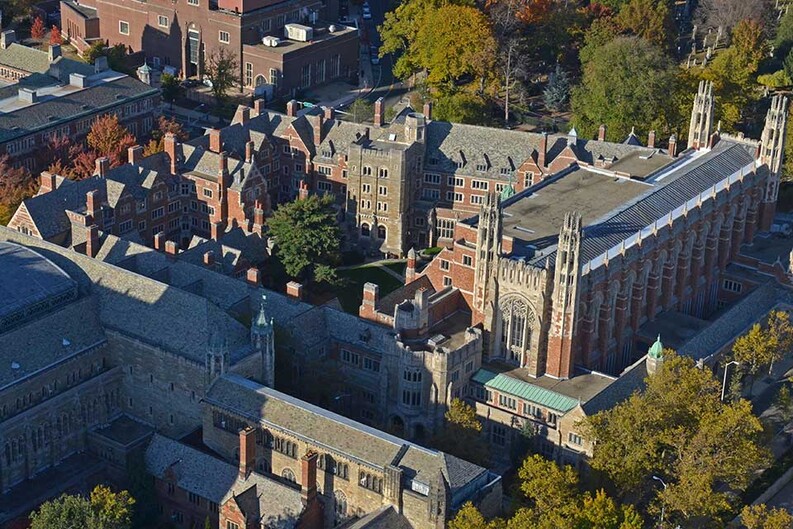Macroeconomics Conference Examines Law in a Post-Pandemic World

In October, Yale Law School partnered with several institutions from around the globe to host the Fourth Conference on Law and Macroeconomics.
This year’s conference examined the role of law in establishing a macroeconomy for a post-pandemic world that better mitigates the uncertainty of the current economic downturn. The virtual event included two days of four concurrent panels, with three papers reviewed in each panel. Papers addressed a range of topics, including financial policy and institutions, regulation, recessions, ethical investing, debt, and inequality.
The conference was co-hosted by the Queen Mary University of London Centre for Commercial Law Studies4 (CCLS), Georgetown Law Institute of International Economic Law5 (IIEL), Tulane Law6, Cornell Law7, Bank of England8, and Rebuilding Macroeconomics9.
Event co-host and Shibley Family Fund Professor of Law Yair Listokin ’0510 said the impetus for the annual forum was to bridge the gap between two groups of people. “Even though lawyers craft much of our economic policy and many limits on macroeconomic policy are legal rather than economic, academic lawyers and macroeconomists rarely talk to each other.”
“The two groups need to collaborate to develop institutions that are robust and geared toward today’s conditions,” said Listokin, who moderated some of the conference panels and presented two papers. “We live in a turbulent macroeconomic era with historically low-interest rates and many people out of the labor force. However, our economic policymaking institutions are designed to cope with a very different macroeconomic paradigm featuring high-interest rates and rapid inflation.”
Preparation for hosting the conference was months in the making, according to Joshua Schenk ’22, who served on the conference’s organizing committee.
“We began planning the Fourth Conference on Law and Macroeconomics during the pandemic, and over several months, we solicited research and scholarship about how the law can serve as an instrument of macroeconomic policy as we move towards recovery from COVID-19. As a result, we received nearly 100 papers before creating a two-day program full of diverse panelists and proposals that explore new connections between law and macroeconomics,” Schenk said.
Charles Goodhart, Emeritus Professor of the London School of Economics and a leading expert on central banking, gave the keynote address about the systemic implications of the bail-in design, a tool meant to address the “too-big-to-fail problem” in the aftermath of the global financial crisis. Other research highlights explored contract law doctrines of impossibility and impracticability as tools of macroeconomic policy when the entire economy is hit by a pronounced shock like a pandemic, central banks and “helicopter money,” debt management and sustainability, and the future of monetary policy as economies recover from the pandemic and prices rise.
Rosa M. Lastra11, Sir John Lubbock Chair in Banking Law at CCLS at Queen Mary University of London, also an event co-host, expanded upon the importance of the conference dialogue. “In a post-pandemic world, a world that faces new systemic risks arising from climate change and unsustainable activities, the role of law in creating a macroeconomy appropriate to the new challenges is of fundamental importance. Without an adequate dialogue between the two disciplines, the result is either bad laws or bad policies (or both).”
The conference also featured a student panel presenting research from Yale Law School students Joel Michaels ’23 and Dez Lane ’22.
“The student papers included a novel analysis of data protection clauses in contracts, a proposal for how to structure a new federal entity that is environmentally sustainable and socially equitable, a new tool through which we can increase accountability of public officials, and a new regulatory approach for rebuilding consumer trust in financial services,” said Schenk, who moderated the panel. “It is so exciting to see the growing dialogue between macroeconomists and academic lawyers, and we can’t wait to start planning next year’s conference.”


